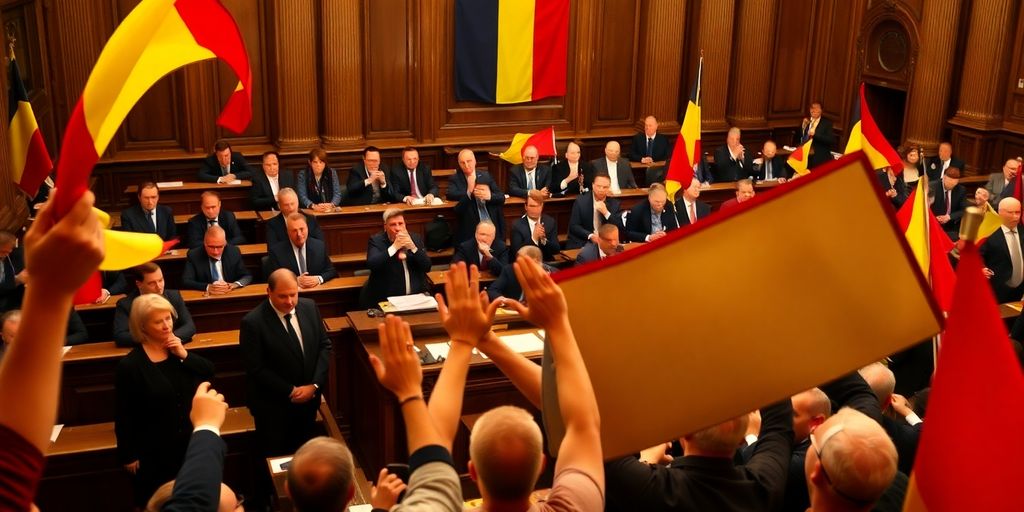Romanian Prime Minister Marcel Ciolacu has resigned following a significant defeat in the first round of the presidential election, where far-right candidate George Simion emerged victorious. This political shift raises concerns about Romania’s future direction, particularly regarding its pro-European Union stance.
Key Takeaways
- Prime Minister Marcel Ciolacu resigns after his coalition’s candidate fails to advance in the presidential election.
- Far-right leader George Simion wins the first round with approximately 41% of the vote.
- The ruling coalition, which aimed to maintain a pro-Western course, is effectively dissolved.
- A runoff election is scheduled for May 18, pitting Simion against centrist candidate Nicușor Dan.
Background of the Resignation
Marcel Ciolacu’s resignation comes just months after he took office, leading a coalition government formed by his Social Democratic Party (PSD), the centrist Liberals, and the ethnic Hungarian UDMR. The coalition was established to ensure Romania remained aligned with EU and NATO policies.
However, the recent election results have highlighted a growing discontent among the electorate, particularly regarding economic issues and security concerns. Simion’s Alliance for the Union of Romanians (AUR) has capitalized on this discontent, positioning itself as a nationalist alternative to the traditional parties.
Election Results Overview
- George Simion (AUR): 41% of the vote
- Nicușor Dan (Independent): Second place
- Crin Antonescu (Coalition Candidate): Third place
The results indicate a significant shift in voter sentiment, with many expressing frustration over high living costs and perceived government inefficiencies. Simion’s campaign has resonated particularly with younger voters and those in the Romanian diaspora, who feel disconnected from the current political establishment.
Implications of the Resignation
Ciolacu’s resignation and the withdrawal of the PSD from the coalition raise several critical questions about Romania’s political future:
- Potential Isolation: A victory for Simion in the upcoming runoff could lead Romania to adopt a more isolationist stance within the EU, aligning it with other eurosceptic leaders in the region.
- Impact on NATO: Given Romania’s strategic position on NATO’s eastern flank, a shift towards nationalism could destabilize the alliance’s operations in Eastern Europe, particularly in relation to ongoing tensions with Russia.
- Economic Concerns: The country faces significant economic challenges, including a large budget deficit. Analysts warn that a far-right government could deter foreign investment and complicate fiscal reforms necessary for economic stability.
The Road Ahead
As Romania prepares for the May 18 runoff, the political landscape remains uncertain. Ciolacu has indicated that the PSD will not endorse either candidate, urging voters to make their own decisions. This decision reflects the party’s recognition of the changing political dynamics and the need to reassess its strategies moving forward.
Simion’s campaign promises to restore national pride and prioritize Romanian interests resonate with a significant portion of the electorate, suggesting that the upcoming election could further reshape Romania’s political identity. The outcome will not only determine the next president but also set the tone for Romania’s future relationship with the EU and its role on the global stage.
Sources
- Romania’s PM resigns after far right wins first round of presidential vote | Elections News, Al Jazeera.
- Romania Election: Prime Minister Ciolac to Resign After Coalition Defeat, Bloomberg.com.
- Romania PM resigns after far-right wins first-round of president vote, Reuters.
- Romanian PM Ciolacu and party quit government after nationalist vote win, BBC.
- Romania’s pro-EU prime minister resigns as Trump ally eyes presidency | Romania, The Guardian.






